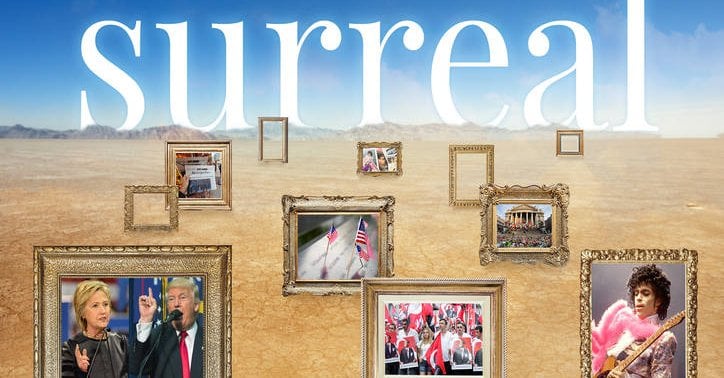“Surreal” is Merriam-Webster’s Word of the Year for 2016, the publisher announced on Monday. Surreal is defined as “marked by the intense irrational reality of a dream.”
Surreal is Merriam-Webster’s Word of the Year because it was looked up significantly more frequently by users in 2016 than it was in previous years, and because there were multiple occasions on which this word was the one clearly driving people to their dictionary.
There are essentially two kinds of high-volume lookups that we track: perennial words that are looked up day-in and day-out, and words that spike because of news events, politics, pop culture, or sports. By analyzing these spikes, we can get a sense as to what significant events sent people to the dictionary, and sometimes, what people think about those events.
Surreal had three major spikes in interest that were higher in volume and were sustained for longer periods of time than in past years. In March, the word was used in coverage of the Brussels terror attacks. Then, in July, we saw the word spike again: it was used in descriptions of the coup attempt in Turkey and in coverage of the terrorist attack in Nice. Finally, we saw the largest spike in lookups for surreal following the U.S. election in November.
1) 'Surreal' is one of the most common lookups following a tragedy
2) 'Surreal' is our 2016 Word of the Yearhttps://t.co/O7azAyRQC1— Merriam-Webster (@MerriamWebster) December 19, 2016
The publisher also offered nine more “notable” words people looked up this year:
Revenant
Icon
In Omnia Paratus
Bigly
Deplorable
Irregardless
Assumpsit
Faute de Mieux
Feckless
What do you think was the most surreal moment of 2016?




